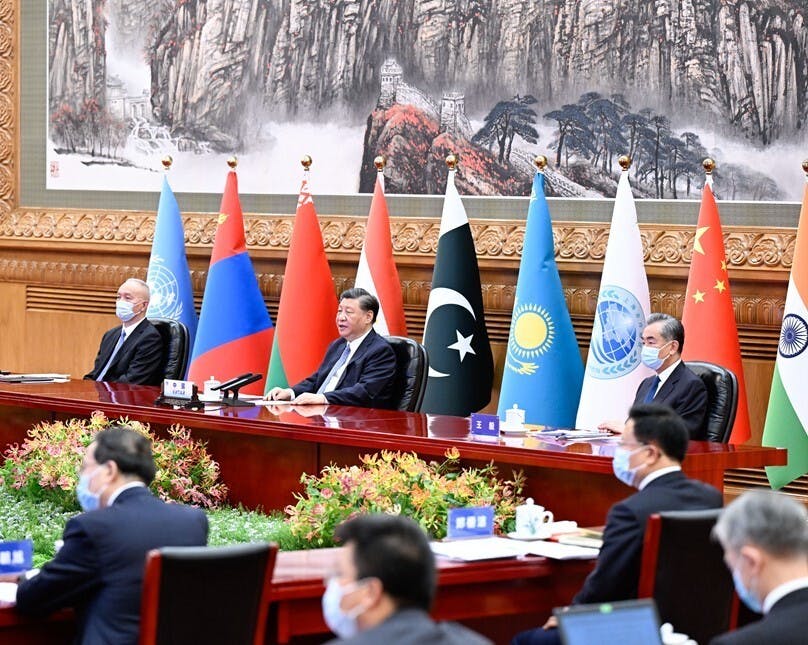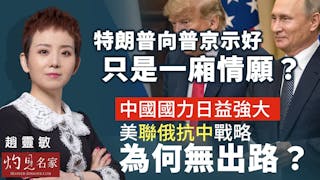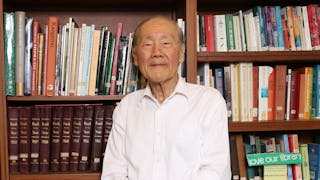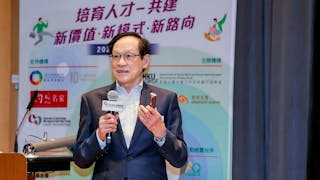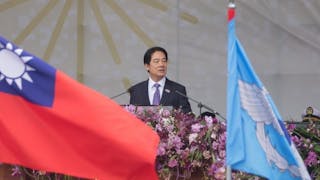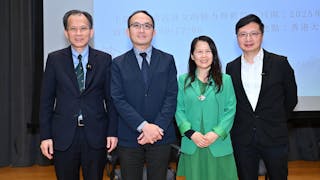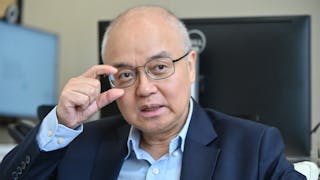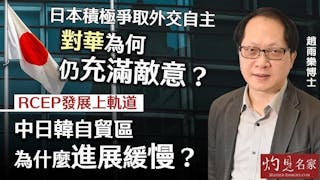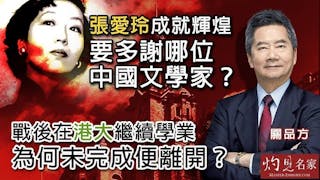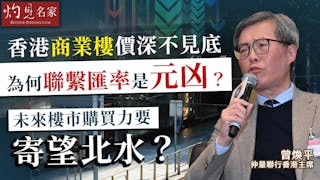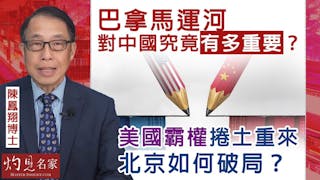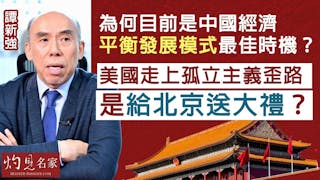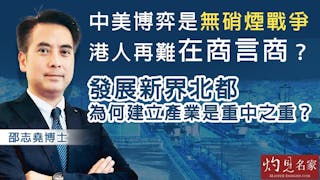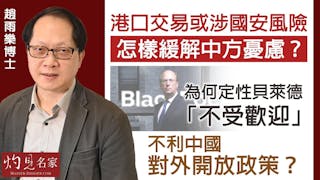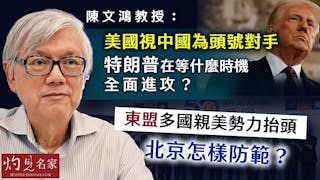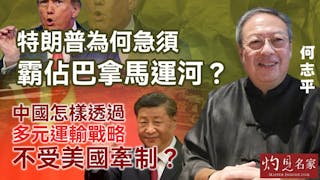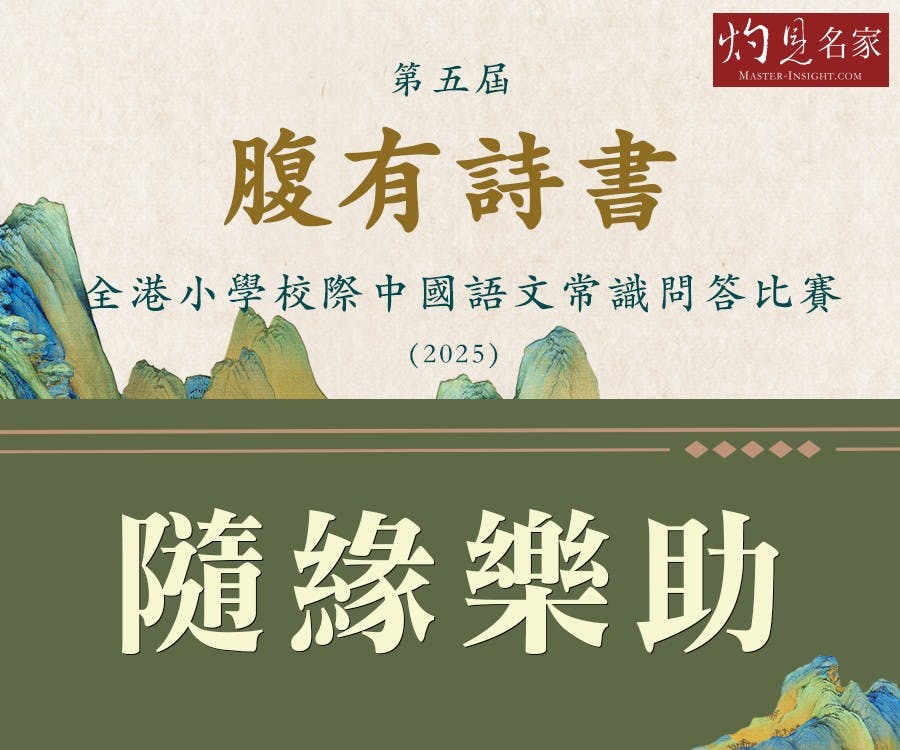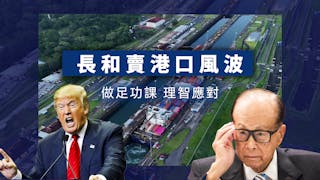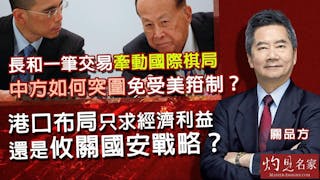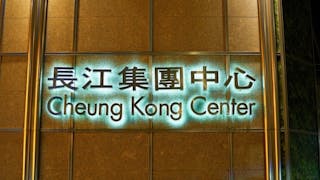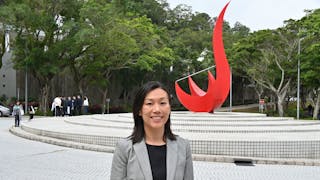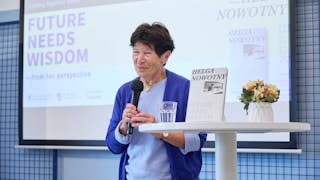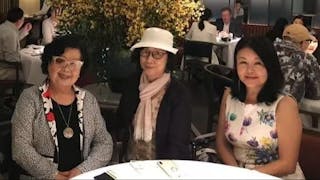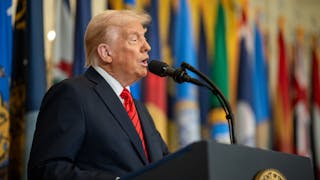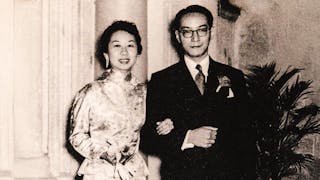從國家主席習近平在上海合作組織成員國元首理事會第二十三會議上發表的重要視像講話來看,中國積極參與上海合作組織,展現了多方面務實的態度。
習主席發表了題為「牢記初心使命 堅持團結協作 實現更大發展」的視像講話。
習近平首先提出了當今世界變亂交織,人類社會面臨前所未有的挑戰。他提出人類面臨的是團結還是分裂、和平還是衝突、合作還是對抗的問題。他的回答很明確:各國人民對美好生活的向往就是我們的追求,和平、發展、合作、共贏的時代潮流不可阻擋。總之,習近平指出,我們要肩負起時代賦予的重任,堅持團結協作,為維護世界和平與發展注入更多確定性和正能量。
習近平主席在講話中提出了5點建議:
反對「脫鈎斷鏈」,強調互利合作
第一,世界各國要把牢正確方向,增進團結互信。
第二,維護地區和平,保障共同安全。中方願同各方一道落實全球安全倡議,堅持通過對話協商化解國家間分歧矛盾,推動政治解決國際和地區熱點問題,築牢地區安全屏障。 因此,上合組織成員國應嚴厲打擊恐怖主義、分裂主義、極端主義、毒品走私、網絡和跨國有組織犯罪;上合組織成員國應在數據安全、生物安全、太空安全等非傳統安全領域拓展合作,還應推動阿富汗走上和平重建道路。
第三,要聚焦務實合作,加快經濟復甦。中方願同各方一道落實全球發展倡議,堅持經濟全球化正確方向,反對保護主義、單邊制裁、泛化國家安全概念,反對「脫鈎斷鏈」。努力把互利合作的「蛋糕」做大,讓發展成果更多更公平惠及各國人民。習近平表示, 今年是他提出「一帶一路」倡議10周年,中方將舉辦第三屆「一帶一路」國際合作高峰論壇,歡迎各方參加論壇活動,共同把這條造福世界的幸福之路鋪得更寬更遠。
加強交流互鑒,促進民心相通
第四,加強交流互鑒,促進民心相通。中方歡迎各方一道落實全球文明倡議,推動不同文明包容共存,促進各國增進友誼和了解。各方可繼續深化教育、科技、文化、衛生、體育、媒體等領域合作,未來3年,未來3年,中方將上合組織國家提供1000個國際中文教師獎學金名額和3000個漢語夏令營名額,還將邀請100名青年科學家來華參加科研交流。
第五,踐行多邊主義,完善全球治理。在這裡,中方要弘揚「全人類共同價值,堅定維護以聯合國為核心的國際體系和以國際法為基礎的國際秩序,反對霸權主義和強權政治」。 推動全球治理朝着更加公正合理的方向發展,在促進權利公平、機會公平、規則公平的共同努力中推進人類社會現代化。最終目標是建設世界和平、促進全球發展、維護國際秩序。
習近平最後強調,中國人民正在中國共產黨的領導下推進中國式現代化建設,中方願為包括上海合作組織國家在內的世界各國提供新的發展機遇,推動建設更加美好的世界。 他總結說,上海合作組織一定會在未來幾年不斷發展壯大。
伊朗加入上合,古特雷斯與會
上合組織會議期間,伊朗作為新成員正式加入上合組織大家庭,上合組織成員國總數達到9個。會議由上海合作組織輪值主席國印度的總理莫迪主持。其他成員國領導人包括哈薩克總統托卡耶夫、吉爾吉斯總統扎帕羅夫、巴基斯坦總理謝里夫、俄羅斯總統普京、塔吉克總統拉赫蒙和烏茲別克總統米爾濟約耶夫。觀察國領導人包括白俄羅斯總統盧卡申科、伊朗總統萊西和蒙古國總統呼日勒苏赫。 主席國還邀請土庫曼總統別爾德穆哈梅多夫和聯合國秘書長古特雷斯等嘉賓與會。
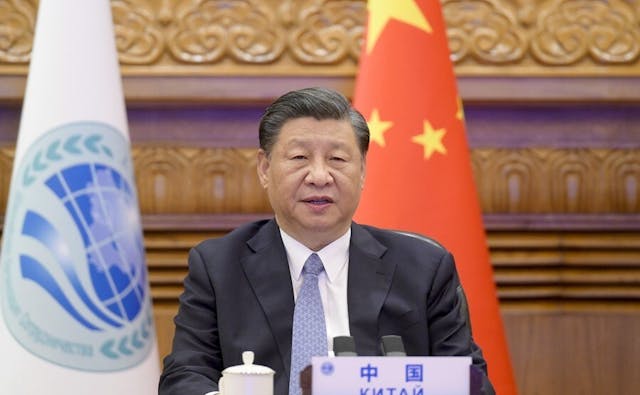
習近平主席的重要講話對中國參與上海合作組織等國際組織的動機具有重要啟示。
首先,中國致力在世界上宣傳其國際和平社會主義意識形態。中國提出「全人類共同價值」、「全球文明」等說法,彰顯中國是一個強調世界和平、不同文明和平共處、相互包容的社會主義國家。 其他諸如反對「霸權主義」、「單邊主義」、「保護主義」和反對「脫鈎斷鏈」等術語,似乎都在暗指美國,但並未公開點名華盛頓當局。
貿易投資協議 推動本幣交易
其次,從務實的角度來看,中國現在正在利用上海合作組織等各種國際組織來推人人民幣國際化。 事實上,2023年6月,一家印度石油公司就使用人民幣購買俄羅斯石油。今年3月,中俄簽署合作協議,雙邊貿易和投資將使用本國貨幣進行交易。 中國倡導建立上合組織開發銀行,很可能將人民幣國際化作為一個務實的經濟目標。
第三,中國在國際組織事務上,似乎將其國際社會主義意識形態與實用主義結合起來。 中國主張區域團結、和平、合作與發展的重點,是針對教育、技術、文化、公共衛生、體育和大眾傳媒等具體領域。如果說,可持續發展是強調世界各國機會均等的中國國際社會主義不可分割的一部分,那麼社會經濟和文化發展則是在國家、人民、民族平等的社會主義意識形態的推動下的務實之舉。
第四,中方一貫將上海合作組織視為促進區域合作打擊恐怖主義、分裂主義、極端主義、毒品走私等跨國有組織犯罪的國際組織。這種務實的態度自2001年上海合作組織成立以來就表現得十分突出。
第五,從地緣政治和戰略角度看,上海合作組織不僅由中國和俄羅斯組成,還包括許多中亞國家及印度。組織成員還有可能進一步擴大,成為在地區安全、貿易、可持續發展、科技合作、打擊跨境犯罪活動,以及文化和教育交流等領域互利的組織。上合組織已明顯從一個安全組織轉變為一個多功能、合作共贏的機構。
總的來說,上海合作組織是中國如何以意識形態和務實態度與多邊組織打交道的重要指標。如果說國際組織是世界各國實現外交政策目標不可或缺的平台,那麼,中國顯然一直將上合組織視為不僅是一個安全組織,而且是一個能夠將中國式現代化推廣到世界其他地區的地區性組織──藉推動世界可持續發展與和平,促進雙邊和多邊貿易,加快人民幣國際化進程,實現「人類命運共同體」和「全人類共同價值」的和平國際社會主義願景。
China’s Perspectives on the Shanghai Cooperation Organization
Judging from an important speech delivered by Xi Jinping, the President of the People’s Republic of China (PRC), during the 23rd meeting of the Council of the Heads of State of the Shanghai Cooperation Organization (SCO) through video conferencing, China has shown multiple motivations in its active participation in the SCO.
President Xi delivered his speech entitled “Staying true to our founding mission and advancing unity and coordination to realise greater development.”
He opened his address by raising the chaotic situation and human transformation in the world. As such, President Xi asked whether the humankind is facing unity or disunity, peace or conflict, cooperation or confrontation. His answers were clear: because peoples in different countries are keen to pursue their ideals, then peace, development, cooperation and a win-win situation are the inevitable trends. In short, according to Xi, we must shoulder the responsibility of the modern time and persist in achieving unity, peace, certainty, and stability in the world.
President Xi made several main points in his speech.
First, countries in the world must grasp the correct directions and promote unity.
Second, we must achieve regional peace and protect common security. China, according to Xi, is keen to work with all countries to implement the Global Security Initiative, promote the settlement of international disputes through dialogue and consultation, and to forge a security shield in the region. As such, the SCO states should crack down on terrorism, separatism, extremism, drugs trafficking, cybercrime and transnational organized crime. The SCO states should cooperate in non-traditional security dimensions, including digital, biological and outer space security. They should also encourage Afghanistan to embark on the path of peace and reconstruction.
Third, we must cooperate to speed up economic recovery. Here, China is willing to contribute to the process of economic globalization. It is opposing protectionism, unilateralism, pan-securitization, any tendency in building up walls and castles, and the so-called “decoupling.” China, according to Xi, is working hard to “make the cake larger,” allowing the fruits of development to be shared among more peoples and more countries. The PRC is also welcoming different countries to participate in the 3rd Belt and Road International Cooperation Forum to build up “a path of wellbeing.” China is promoting the process of building up a developmental bank of the SCO.
Fourth, the PRC is enhancing mutual human interactions and exchanges. In other words, China is welcoming all countries to implement its advocacy of “the global civilization,” which means that different civilizations are coexisting and tolerating each other with the promotion of better knowledge and friendship among all peoples. As such, many aspects of cooperation can be forged, including education, technology, culture, public health, sports, and the mass media. In the next three years, China would provide 1,000 scholarships for SCO states for Chinese teachers and 3,000 places for the Chinese language summer camp. It would also invite 100 young scientists to visit China to participate in technological and scientific exchanges.
Fifth, China is keen to implement multilateralism and improve as well as perfect global governance. Here, China is eager to promote the ideal of “common values for the humankind, resolutely protect the international law and order under the core international entity of the United Nations and oppose hegemonism and strong power politics.” China is also eager to promote fair and reasonable direction and path of global governance, to promote rights and fairness and the equality of opportunities, and to propel the modernization of human society. The ultimate objectives are to build up world peace, promote development and protect the international order.
Finally, President Xi emphasized that the Chinese people are propelling the development and construction of Chinese-style modernization under the leadership of the Communist Party of China (CPC). He added that China is willing to provide more opportunities for SCO states to promote a better world through the achievements of this Chinese style of modernization. He concluded that the SCO would surely become stronger and make progress in the coming years.
During the SCO meeting, Iran formally joined its family as a new member, leading to a total membership of nine in SCO. The meeting was chaired by Prime Minister Narendra Modi of India, which is holding a rotating presidency of the SCO. Other member states’ leaders included Kazakh President Kassym-Jomart Tokayev, Kyrgyz President Sadyr Zhaparov, Pakistani Prime Minister Muhammad Shebaz Sharif, Russian President Vladimir Putin, Tajik President Emomali Rahmon, and Uzbek President Shavkat Mirziyoyev. Leaders of the observing states included Belarusian President Aleksandr Lukashenko, Iranian President Ebrahim Raisi, and Mongolian President Khurelsukh Ukhnaa. The President invited some guests to participate in the meeting, such as Turkmen President Serdar Berdimuhamedov, and the UN Secretary-General Antonio Guterres.
President Xi’s important speech had important implications on China’s motivations in its participation in international organizations, such as the SCO.
First, the PRC is keen to promote its ideology of international and peaceful socialism in the world. With terms like “common values of the mankind” and the coexistence of “global civilizations,” China is clearly a socialist state that emphasizes global peace through peaceful coexistence and mutual tolerance of various civilizations. Other terms like “anti-hegemony,” and the opposition to “unilateralism,” “protectionism” and “decoupling” appeared to imply the United States without naming Washington diplomatically.
Second, from a pragmatic perspective, China is now utilizing various international organizations, such as the SCO, to promote and propel the internationalization of Renminbi. In fact, in June 2023, an Indian oil company utilized Renminbi to buy Russian oil. In March, China and Russia signed a cooperative agreement saying that their bilateral trade and investment would use their countries’ currencies as transactions. The Chinese advocacy of setting up a SCO development bank is likely putting the internationalization of Renminbi as a pragmatically economic objective.
Third, China appears to combine its ideology of international socialism with pragmatism in dealing with international organizations. The emphases on regional unity, peace, cooperation, and development are targeting at concrete areas, like education, technology, culture, public health, sports, and the mass media. If sustainable development is an indispensable part of China’s international socialism, which has stressed the equality of opportunities among countries in the world, then socio-economic and cultural development is a pragmatic move heavily shaped by a socialist ideology of equality among states, nations, and peoples.
Fourth, China has been quite consistent in seeing the SCO as an international organization that promotes regional cooperation in the combat against transnational organized crimes, including terrorism, separatism, extremism, and drugs trafficking. This pragmatic motivation has been quite prominent since the founding of SCO in 2001.
Fifth, from a geopolitical and strategic perspective, the SCO is composed of not only China and Russia but also many Central Asian states as well as India. Its membership is likely to expand further into an organization mutually beneficial in the areas of regional security, trade, sustainable development, scientific and technological cooperation, the combat against transborder criminal activities and cultural as well as educational exchange. The SCO has clearly transformed itself from a security organization into a body with multiple functions and a win-win cooperative tendency.
In conclusion, the SCO is an important indicator of how China has been dealing with multilateral institutions in a mixture of ideological and pragmatic motivations. If international organizations represent indispensable platforms for countries in the world to achieve their foreign policy objectives, then clearly China has been seeing the SCO as not only a security organization, but also a regional body that can promote the Chinese style of modernization to other parts of the world, propel sustainable development and peace in the world, stimulate bilateral and multilateral trade, accelerate the process of the internationalization of Renminbi, and achieve its peaceful and international socialist vision of having “the common destiny” and “common values” of “the humankind.”
原刊於澳門新聞通訊社(MNA)網站,本社獲作者授權轉載。原文網址:https://www.macaubusiness.com/opinion-chinas-perspectives-on-the-shanghai-cooperation-organization/



